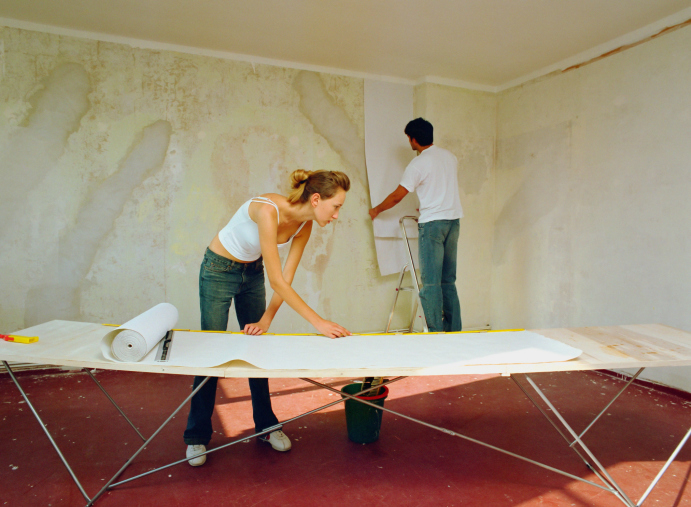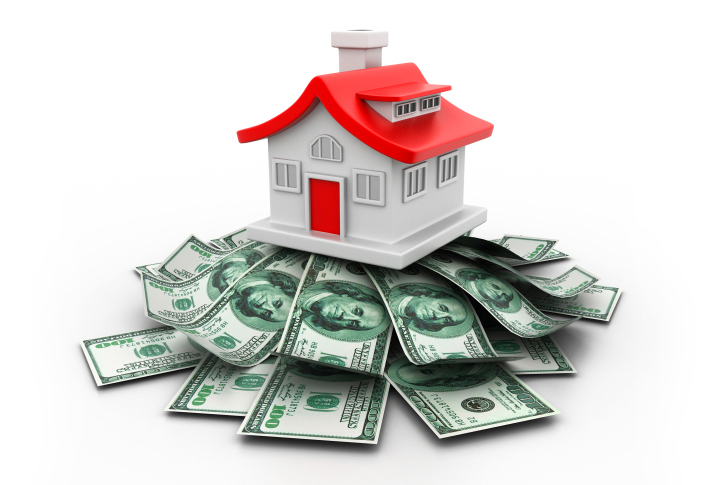 Finding the perfect property is an exciting feeling, but its relative location can leave a lot of room for worry. Buying a home in the city is a venture that comes with an entire assortment of advantages and disadvantages. While the location might be close in proximity to businesses, services, and other people, it’s easy to worry about the other aspects of city living. What are the great and not-so-great facets of living on a busy street?
Finding the perfect property is an exciting feeling, but its relative location can leave a lot of room for worry. Buying a home in the city is a venture that comes with an entire assortment of advantages and disadvantages. While the location might be close in proximity to businesses, services, and other people, it’s easy to worry about the other aspects of city living. What are the great and not-so-great facets of living on a busy street?
Pro: Access to Businesses and Schools
The chances are high that anyone living in a busy area is within walking distance of any store, shop, or service. Likewise, children have a range of options for education in busier areas; there are often multiple schools to choose from in any given busy area.
Pro: Access to Many Internet/TV Providers
In highly populated areas, a large number of internet and TV providers can co-exist. This means residents have a number of options when the time comes to choose providers. Luckily, it’s often difficult for providers monopolize densely populated areas.
Pro: Sense of Community
Many people that live in busy areas will be quick to share that they adore the sense of community. In fact, a large population is often one of the biggest reasons that people choose to move to bigger areas.
Con: Noise Level
As a street sees more activity, there’s no doubt that the noise level will also be a bit higher than usual. Residents that own homes on busy streets not only hear lots of noise from outside traffic, but they also often hear police sirens, animals, conversation, and more.
Con: Higher Price
It’s no secret that busy areas are a bit more expensive to live in. As anyone would expect, the convenience of city living comes with a higher price. Expect to hand over quite a bit more for a property in a highly populated area.
Con: Parking
Depending on the location of the neighborhood, parking can also be a problem. If street parking isn’t allowed, a resident in a big city might have to sacrifice their vehicle or park it a long distance from the property. This can be off-putting for many buyers.
If you’re on the fence about purchasing a property on a busy street, get more information from your trusted real estate agent before making a decision. A professional agent can provide valuable information about the property, neighborhood, chances for resale in the future, and much more. Don’t proceed any further without an agent’s advice!
 Every owner of condominium property automatically becomes a member of a homeowners association, otherwise referred to a “HOA” throughout the United States or a “Strata” in Canada. With that membership come certain rights and responsibilities. The primary right that the owner has is to vote at HOA meetings and elect board members. Responsibilities include payment of condo fees and assessments, compliance with association by-laws and rules, and maintaining a condo unit in conformity with those by-laws and rules.
Every owner of condominium property automatically becomes a member of a homeowners association, otherwise referred to a “HOA” throughout the United States or a “Strata” in Canada. With that membership come certain rights and responsibilities. The primary right that the owner has is to vote at HOA meetings and elect board members. Responsibilities include payment of condo fees and assessments, compliance with association by-laws and rules, and maintaining a condo unit in conformity with those by-laws and rules. Size matters when you are buying a new home. Whether you plan to expand your family, need more room for your stuff, or are concerned with resale value, you want to get the most space for your money. Also, if you want to add a feel of luxury to your home, one of the best ways to do it is to create open spaces rather than cramming all your furniture in rooms so tiny you can barely walk around without knocking something over.
Size matters when you are buying a new home. Whether you plan to expand your family, need more room for your stuff, or are concerned with resale value, you want to get the most space for your money. Also, if you want to add a feel of luxury to your home, one of the best ways to do it is to create open spaces rather than cramming all your furniture in rooms so tiny you can barely walk around without knocking something over. Are you about to buy a house or condo for the first time? Congratulations! Owning your own piece of real estate is a liberating experience and one that will provide you with the foundation to build your personal wealth and equity. Once you own your own home you’ll be responsible for a variety of new costs, including property taxes which are assessed by your local government to pay for municipal services. In this blog post we’ll share how property taxes work and what you can expect to pay when you buy your new home.
Are you about to buy a house or condo for the first time? Congratulations! Owning your own piece of real estate is a liberating experience and one that will provide you with the foundation to build your personal wealth and equity. Once you own your own home you’ll be responsible for a variety of new costs, including property taxes which are assessed by your local government to pay for municipal services. In this blog post we’ll share how property taxes work and what you can expect to pay when you buy your new home. If you’ve been thinking about investing in a real estate project you may have considered buying a distressed house or two at a steep discount in order to fix them up and sell them at a higher price. This is known as “flipping”, and in today’s post we’ll share a quick guide to flipping homes and how to get started with this type of real estate investing.
If you’ve been thinking about investing in a real estate project you may have considered buying a distressed house or two at a steep discount in order to fix them up and sell them at a higher price. This is known as “flipping”, and in today’s post we’ll share a quick guide to flipping homes and how to get started with this type of real estate investing. Are you ready to make that leap from living at home or renting to owning a home of your own? While everyone moves at their own pace, here are some signs that you can use to determine if it is time to own your own home. Let’s take a look at some of the reasons you can use to justify your decision.
Are you ready to make that leap from living at home or renting to owning a home of your own? While everyone moves at their own pace, here are some signs that you can use to determine if it is time to own your own home. Let’s take a look at some of the reasons you can use to justify your decision. You’ve found the perfect new house or condo, and you are now preparing an offer that you believe the seller will find tempting enough to accept. However, you know that there are going to be thousands of dollars in closing costs that need to be paid before the sale is completed and you become the home’s new owner.
You’ve found the perfect new house or condo, and you are now preparing an offer that you believe the seller will find tempting enough to accept. However, you know that there are going to be thousands of dollars in closing costs that need to be paid before the sale is completed and you become the home’s new owner. With mortgage bubbles and real estate issues still in recent memory, one might feel that their best option is to buy their next home using cash instead of borrowing the necessary funds. In today’s article we’ll explore the pros and cons of paying cash for that next house or condo.
With mortgage bubbles and real estate issues still in recent memory, one might feel that their best option is to buy their next home using cash instead of borrowing the necessary funds. In today’s article we’ll explore the pros and cons of paying cash for that next house or condo. If you’re in the process of simultaneously buying and selling a home, you may be in for the most stressful experience of your life. One UK-based real estate survey of over two thousand people found that buying and selling a house is more stressful than divorce, bankruptcy, a death in the family, becoming a parent for the first time, and even planning a wedding!
If you’re in the process of simultaneously buying and selling a home, you may be in for the most stressful experience of your life. One UK-based real estate survey of over two thousand people found that buying and selling a house is more stressful than divorce, bankruptcy, a death in the family, becoming a parent for the first time, and even planning a wedding!